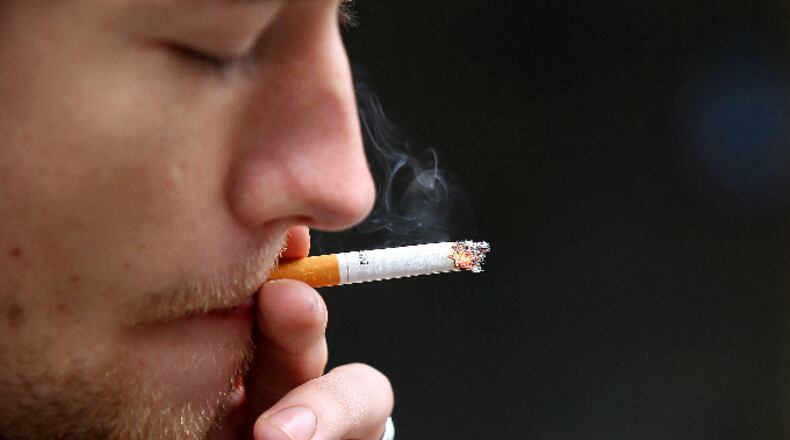In preparation for World No Tobacco Day 2017 on Wednesday, the World Health Organization highlighted the dangers of tobacco use as one of the biggest public health threats in the world.
» RELATED: How much does smoking really cost you? $22,654 a year in Georgia
More than 7 million people die every year due to tobacco use, costing households and governments more than $1.4 trillion in healthcare costs and productivity loss, experts wrote in a news release.
In addition, tobacco waste contains more than 7,000 toxic chemicals that poison the environment and contributes to 16 percent of all noncommunicable disease deaths.
The drug is a threat to livelihoods, too, according to the WHO. Around 860 million adult smokers live in either low- or middle-income countries, often spending more than 10 percent of their income on tobacco products and leaving less for things such as food, healthcare and education.
» RELATED: Are e-cigarettes a way to quit smoking?
According to the Atlanta-based Centers for Disease Control and Prevention (CDC), smoking is the leading cause of preventable death in the U.S. with more than 480,000 annually reported deaths (nearly one in five deaths) and 16 million Americans suffering with at least one disease caused by smoking.
This costs the country nearly $170 billion in direct medical costs.
Nationwide, according to 2015 data, 31.4 percent of U.S. high school youth reported using a tobacco product and 10.8 percent reported smoking cigarettes.
In Georgia, approximately 11,700 adults die from smoking-related illnesses every year, according to CDC data.
In 2015, 17.7 percent of adults in Georgia smoked cigarettes and the state spent about $3.2 billion on healthcare costs due to smoking in 2009.
A previous study by personal finance website WalletHub found Georgia's lifetime cost per smoker to be $1,155,351.
While the state doesn’t have a comprehensive smoke-free law to protect folks from secondhand smoke everywhere, five Georgia cities, one county, 33 University of Georgia campuses, 163 hospitals and 116 public school districts have adopted either tobacco-free or smoke-free policies.
» RELATED: East Point bans smoking in parks
Many local restaurants, parks and other areas have also adopted policies to prevent harm from secondhand smoke.
The CDC offers tips for smokers who want to quit, including a hotline for referrals to local resources (1-800-784-8669), best practices guidelines and more at CDC.gov.
More about the threat of tobacco use at WHO.int.
About the Author
Keep Reading
The Latest
Featured



